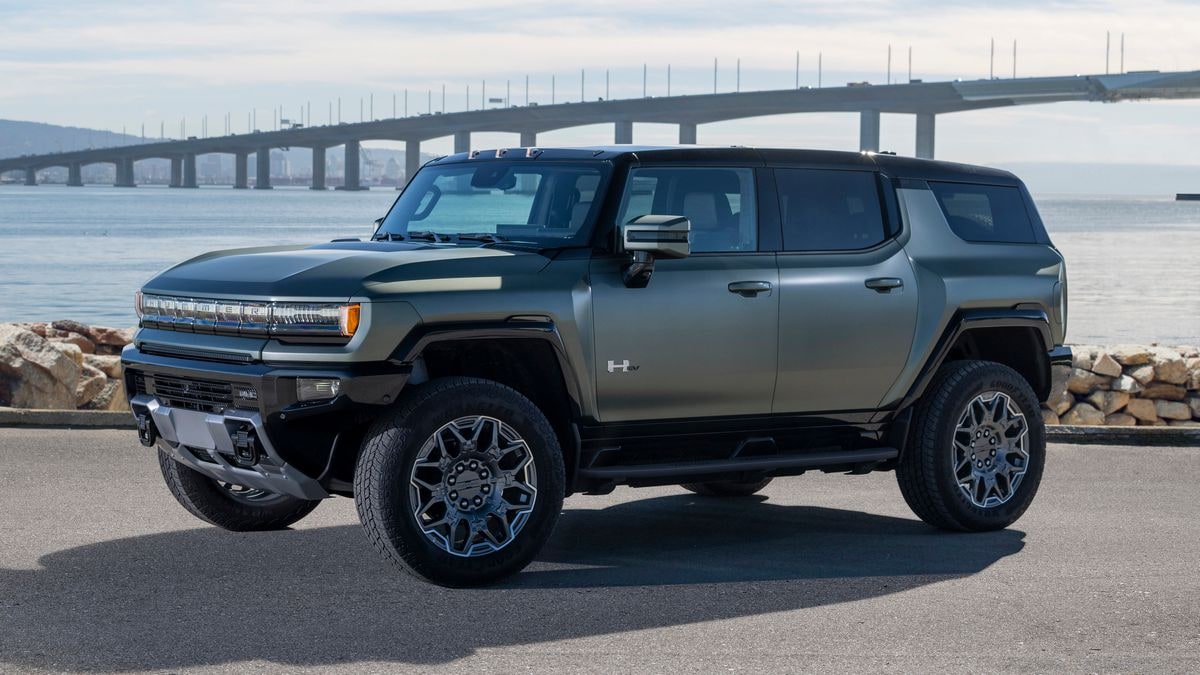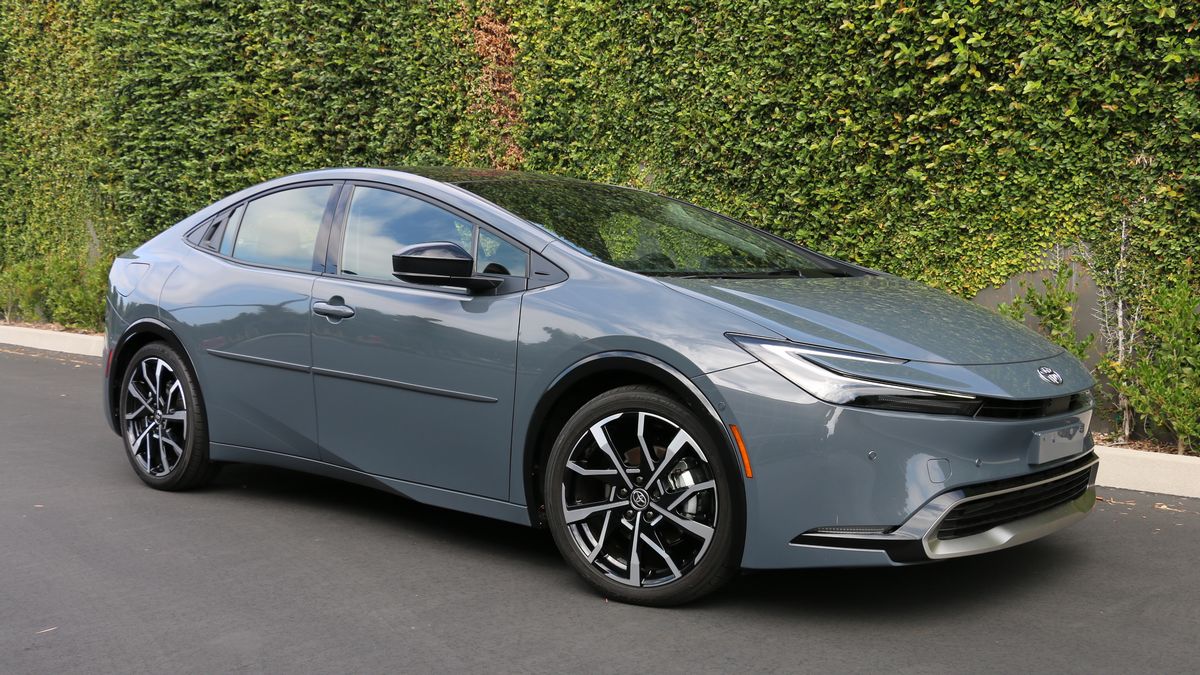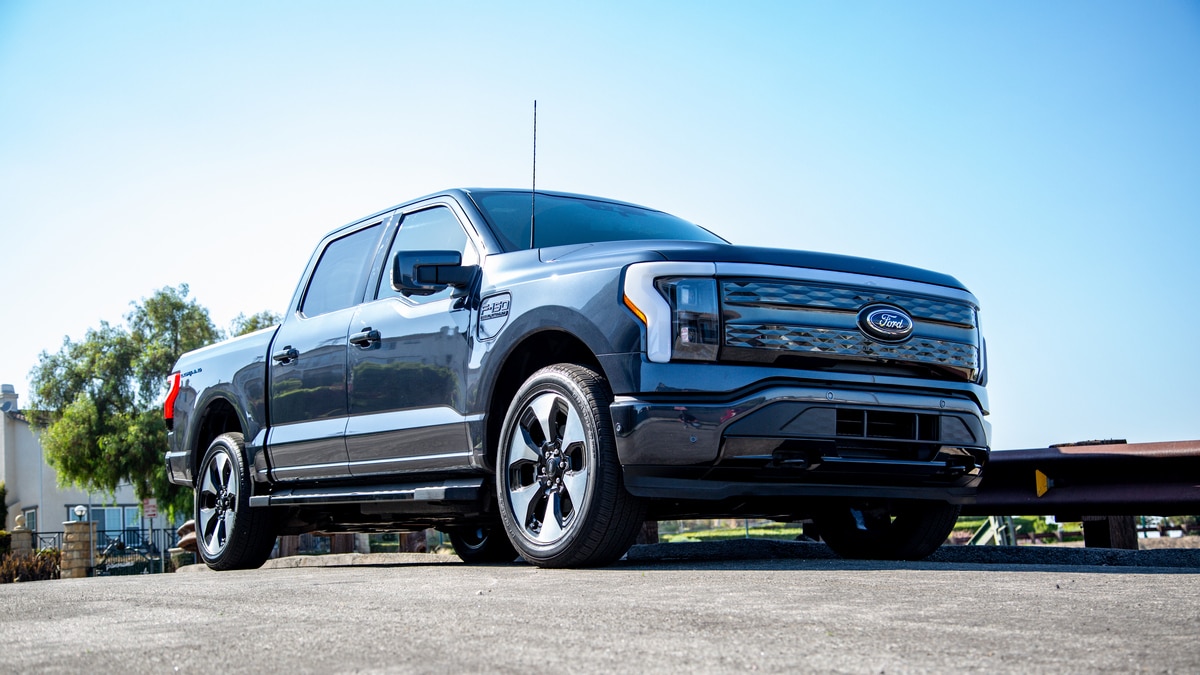Millions of Americans want to cut their carbon footprints, help the U.S. economy get off of foreign oil, and save money at the gas pump. They’d do well to buy an electric vehicle (EV). But, if they want to make a difference, they should buy a plug-in hybrid (PHEV).
That’s the conclusion of a new study from the American Council for an Energy-Efficient Economy (ACEEE). A non-profit that aims to develop “transformative policies to reduce energy waste and combat climate change,” the council publishes an annual assessment of the real-world environmental impact of “every new model in the U.S. light-duty vehicle market.”
In 2024, the council says, the greenest car on the market is the Toyota Prius Prime. Toyota’s plug-in hybrid beat out every EV on the market thanks mainly to its light weight and smaller battery.
PHEVs Are Part-Time EVs
Related: What Is a Plug-In Hybrid?
A plug-in hybrid is halfway between an EV and a gas-powered car. PHEVs recharge from a wall outlet and travel a certain distance on electricity – usually between 25 and 35 miles, depending on the model. They then use their gasoline engines to go further.
Buying one is like owning an EV for your commute and daily errands and a gas-powered car for road trips. But it only requires one car payment and one parking space.
Study Considers Costs of Building, Driving
The ACEEE’s analysis considers the impact of driving a car and the resources used in building it. The council rates “each model year 2024 car on its cost to human health from air pollution associated with vehicle manufacturing and disposal, the production and distribution of fuel or electricity, and vehicle tailpipe emissions.”
“While a gigantic electric truck weighing thousands of pounds might be better than a gas truck of the same size, both will be outmatched by a smaller, efficient gas vehicle,” the Washington Post explains. The massive, heavy batteries required to move such a large vehicle are resource-intensive. Mining and processing enough material to build them has real environmental and health costs.
“The more huge vehicles there are on the road, the harder it will be for the United States to meet its goal of zeroing emissions by 2050,” the Post explains.
Small EVs Are Among the Greenest; Large Ones Counterproductive
Smaller EVs still do very well in the ACEE’s analysis.
The Lexus RZ, Mini Cooper SE, Nissan Leaf, and Toyota bZ4X round out the top five. Each is a full EV, but on the smaller side.
Driving home the point, one EV made the list of the ten worst cars for the environment. The massive GMC Hummer is all-electric but is listed among the most damaging models. If you care about the environment, ACEEE’s analysis says, you’re better off buying a gas-powered heavy-duty pickup than the Hummer.

Should You Consider a PHEV?
PHEVs seem like the best of both worlds. But there are drawbacks. Owning two powertrains means owning a lot of moving parts. More moving parts means more failure points. A recent Consumer Reports analysis found that PHEVs have 146% more mechanical problems than old-fashioned gas-powered cars.
However, the Prius Prime enjoys Toyota’s reputation for reliability. Several other PHEVs with ten-year powertrain warranties are available to ease this concern, including models from Hyundai, Kia, and Mitsubishi.
Scoring
The ACEE gives each car a “green score” based on “the emissions from fuel burned in a vehicle’s engine,” as well as “the upstream emissions generated by electricity used by a vehicle, emissions produced when mining and processing minerals for batteries, and emissions from manufacturing vehicles and vehicle components.” Readers can see scores by vehicle class on the council’s website.
The Ten Greenest Cars
| Rank | Make & Model | Powertrain | Green Score |
MSRP | Estimated Annual Fuel Cost* |
| 1 | Toyota Prius Prime SE | PHEV | 71 | $32,975 | $529 |
| 2 | Lexus RZ 300e | EV | 67 | $55,150 | $651 |
| 3 | Mini Cooper SE | EV | 67 | $30,900 | $747 |
| 4 | Nissan Leaf | EV | 66 | $28,140 | $741 |
| 5 | Toyota bZ4X | EV | 66 | $43,070 | $689 |
| 6 | Toyota RAV4 Prime | PHEV | 64 | $43,690 | $741 |
| 7 | Hyundai Elantra Blue | Gas Hybrid | 64 | $26,250 | $864 |
| 8 | Hyundai Kona Electric | EV | 63 | $34,050 | $695 |
| 9 | Toyota Camry LE | Gas Hybrid | 63 | $28,855 | $907 |
| 10 | Kia EV6 | EV | 63 | $43,975 | $689 |
| 11 | Toyota Corolla | Gas Hybrid | 62 | $23,500 | $944 |
| 12 | Hyundai Ioniq 5 | EV | 62 | $41,650 | $737 |
| *ACEEE analysis using Energy Information Administration (EIA) data of annual cost—from gasoline, electricity, or a combination—of driving 15,000 miles | |||||
The Ten Meanest Cars
The meanest cars list is almost entirely populated with high-performance special editions built in rare numbers with extra-powerful engines. The Ram TRX, for instance, is a special edition of the Ram 1500 with more than 700 horsepower. The Ford F-150 Raptor R is a Ford truck built to answer it with a muscle car’s overpowered engine. The Cadillac Escalade V is a high-performance, supercharged version of Cadillac’s standard large SUV.
| Rank | Make & Model | Powertrain | Green Score |
MSRP | Estimated Annual Fuel Cost* |
| 1 | Mercedes-Benz AMG G63 | Gas | 20 | $184,000 | $4,242 |
| 2 | Ram 1500 TRX 4×4 | Gas | 22 | $98,335 | $3,819 |
| 3 | Ford F150 Raptor R | Gas | 24 | $79,975 | $3,777 |
| 4 | Cadillac Escalade V | Gas | 26 | $152,295 | $3,388 |
| 5 | Dodge Durango SRT | Gas | 26 | $74,995 | $3,332 |
| 6 | Jeep Wrangler 4dr 4X4 | Gas | 27 | $35,895 | $3,260 |
| 7 | Jeep Grand Wagoneer 4×4 | Gas | 28 | $91,945 | $3,058 |
| 8 | Mercedes-Benz G550 | Gas | 28 | $143,000 | $3,186 |
| 9 | GMC Hummer EV SUV | EV | 29 | $98,845 | $1,746 |
| 10 | GMC Sierra | Gas | 29 | $37,700 | $3,069 |
| 11 | Chevrolet Corvette Z06 | Gas | 30 | $114,395 | $3,169 |
| 12 | Mercedes-Benz Maybach S680 | Gas | 30 | $234,300 | $3,031 |





